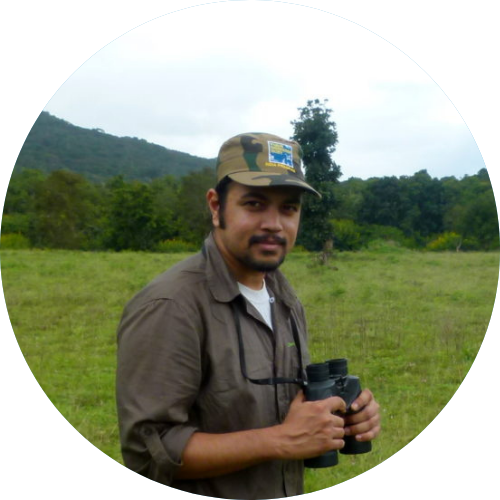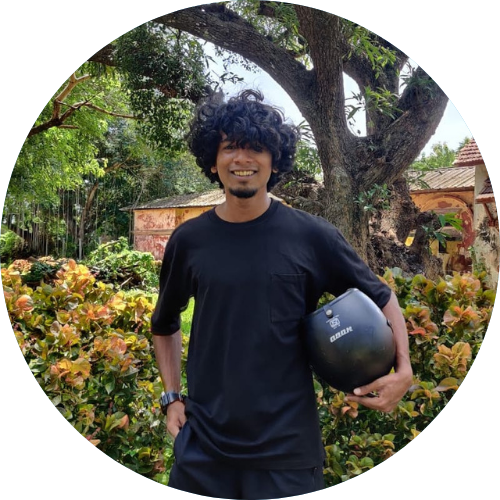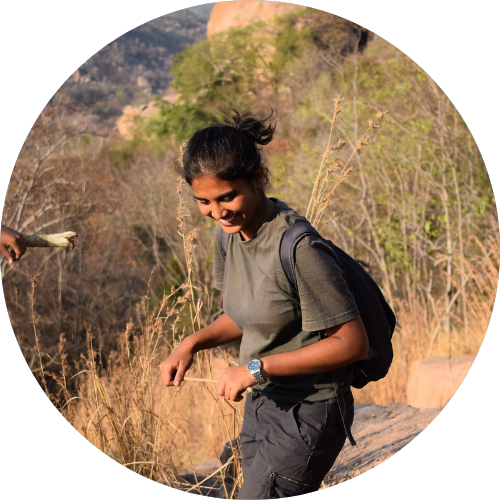Team

Dr. Arjun Srivathsa
Arjun holds a Master’s degree in Wildlife Biology and Conservation from NCBS–WCS-India and a PhD in conservation ecology of dholes from the University of Florida, USA. He is currently a DST INSPIRE Fellow at NCBS–TIFR and an Affiliate Scientist with WCS–India.
His research encompasses carnivore ecology, human-carnivore interactions, conservation prioritization, and wildlife population monitoring across Asia. Arjun is a member of the IUCN SSC Canid Specialist Group, the IUCN Dhole Working Group, and an Associate of the Indian Academy of Sciences. Additionally, he is a professional artist and cartoonist, creating conservation-themed artwork for nature education and science communication.

Abraham Pious
Abraham holds a Bachelor's in Commerce from Madras Christian College and gained experience in plastic neutrality at rePurpose Global. Pursuing his passion for wildlife conservation, he interned at the Nature Conservation Foundation (NCF) and National Centre for Biological Sciences (NCBS), contributing to studies on leopard ecology, dholes, and human-elephant dynamics in the Western Ghats. He earned a Master's in Ecology from Pondicherry University, focusing on the spatial ecology of dholes. Currently, affiliated with WCS-India, his research explores the coexistence of dholes in human-dominated agroforest landscapes.

Anshita Das
Anshita holds a Master’s in Wildlife Conservation Action and is interested in carnivore population ecology, behavior, and conservation science. Her Master’s dissertation focused on striped hyenas’ dependence on village dumping grounds and people's perspectives on hyenas in these areas. She has interned on projects involving tigers, dholes, and otters. Anshita is a Research Associate, focusing on dholes' reliance on anthropogenic food in human-dominated landscapes, social media perceptions of dholes, and their micro-scale space use.

Pooja Saravanan
Pooja holds a Master’s degree in Wildlife Biology, with her thesis focused on beach profile characteristics of the Olive Ridley mass nesting beach at Rushikulya. She has worked on wildlife conservation awareness programs for schoolchildren and local stakeholders. She later joined The Dhole Project at the National Centre for Biological Sciences (NCBS), where her research centres on understanding dhole populations in the Western Ghats and establishing an informant network to address knowledge gaps concerning dholes. Her passion extends to exploring ecosystem services, human-wildlife interactions, carnivore ecology, and conservation education.

Thasmai H. S.
Thasmai is passionate about wildlife conservation, holding a Master's in Wildlife Conservation Action from the Institute of Environment Education and Research, Bharati Vidyapeeth. Her interests include carnivore ecology, particularly canids, human-wildlife interactions, and wildlife law enforcement. She has contributed to projects on smooth-coated otters with Wild Otters Research and human-tiger conflict mitigation in the Sundarbans with WTI. Her Master's thesis assessed illegal wildlife trade in Mysore. She joined The Dhole Project last year as an intern for NCBS and later moved to WCS-India.